Managing Stress From Work and Life Demands
In today’s fast-paced society, the pressures placed on adults have never been greater. Juggling demanding jobs, family responsibilities, financial obligations, and the constant stream of information from digital devices can feel overwhelming.
For many, this results in heightened anxiety and stress, which, if not managed effectively, can take a significant toll on both mental and physical health. At Vital Psych MD, we recognize these challenges and are dedicated to providing evidence-based strategies and compassionate support to help you reclaim balance in your life through our comprehensive mental health services.
Understanding the Sources of Modern Stress and Anxiety
The pressures of modern life are multifaceted. Work environments have become increasingly competitive, with blurred boundaries between professional and personal time due to technology. According to the American Institute of Stress, approximately 83% of US workers suffer from work-related stress, with 25% saying their job is the number one stressor in their lives. This is compounded by other responsibilities—parenting, caregiving, and financial management—all of which demand attention and energy.
Complicating matters further, the rise of social media and the constant connectivity of smartphones can contribute to a sense of never truly being “off the clock.” This digital overload has been associated with increased rates of anxiety and sleep disruption.
Recognizing the Signs: When Stress Becomes a Problem
Stress and anxiety are natural responses to challenging situations. However, when these feelings become chronic or overwhelming, they can interfere with daily functioning and well-being.
Some common symptoms include persistent worry, irritability, difficulty sleeping, muscle tension, headaches, and trouble concentrating. If left unmanaged, chronic stress can contribute to more serious health conditions, such as heart disease and depression (Mayo Clinic).
It’s important to recognize when stress has crossed the line from being a motivator to a barrier. If you find that anxiety is impacting your ability to perform at work, maintain relationships, or enjoy activities, it may be time to seek professional support.
Applying Practical Strategies to Manage Work-Related Anxiety
Managing anxiety in the workplace starts with identifying stressors and developing coping mechanisms that work for you. Setting boundaries is crucial—this may mean designating specific times to check emails or turning off notifications after work hours to preserve personal time. Time management techniques, such as prioritizing tasks and breaking projects into smaller steps, can make workloads feel more manageable.
Mindfulness and relaxation exercises have demonstrated effectiveness in reducing stress. Practices like deep breathing, meditation, or even brief walks during breaks can help reset your mind and reduce anxiety. Establishing a supportive network, whether through colleagues, friends, or mental health professionals, can also provide valuable perspective and encouragement.
Building Resilience for Everyday Demands
Resilience—the ability to adapt and bounce back from adversity—is a key factor in managing life’s challenges. Developing resilience is not about avoiding stress but learning to handle it more effectively.
Regular exercise, a balanced diet, and sufficient sleep are fundamental to supporting mental health and building resilience. The National Institute of Mental Health highlights the importance of self-care practices in reducing stress and improving overall well-being.
Cognitive-behavioral techniques, such as reframing negative thoughts and practicing gratitude, can also foster a more resilient mindset. Setting realistic expectations for yourself and practicing self-compassion during setbacks are essential components of long-term well-being.
Seeking Professional Support
While many people can manage stress and anxiety with self-care and lifestyle adjustments, there are times when professional help is necessary. Mental health professionals, such as those at Vital Psych MD, can provide evidence-based therapies and guidance tailored to your unique situation. Cognitive Behavioral Therapy (CBT), for example, is highly effective in treating anxiety disorders and managing stress.
If you are experiencing persistent symptoms of anxiety—or if stress is interfering with your work, relationships, or enjoyment of life—consider reaching out for help. Early intervention can prevent symptoms from worsening and provide you with tools to navigate challenges more effectively.
Creating a Personalized Plan for Managing Stress
Every individual’s experience with stress and anxiety is unique. What works for one person may not work for another, making it important to develop a personalized approach. Start by assessing your primary sources of stress, identifying coping strategies that have worked in the past, and setting realistic goals for improvement.
Consider integrating regular check-ins with yourself to monitor your stress levels and adjust your strategies as needed. Don’t hesitate to utilize resources available through your workplace, community, or healthcare provider. At Vital Psych MD, we are committed to supporting you every step of the way.
Moving Forward With Confidence
Managing anxiety and stress in today’s demanding world is an ongoing journey, not a destination. By understanding your triggers, prioritizing self-care, and seeking support when needed, you can build resilience and regain a sense of control over your life. Remember, you are not alone in facing these challenges, and help is always available.
For more information, resources, or to schedule an appointment,
visit Vital Psych MD. Let us help you take the next step toward a healthier, more balanced life.











